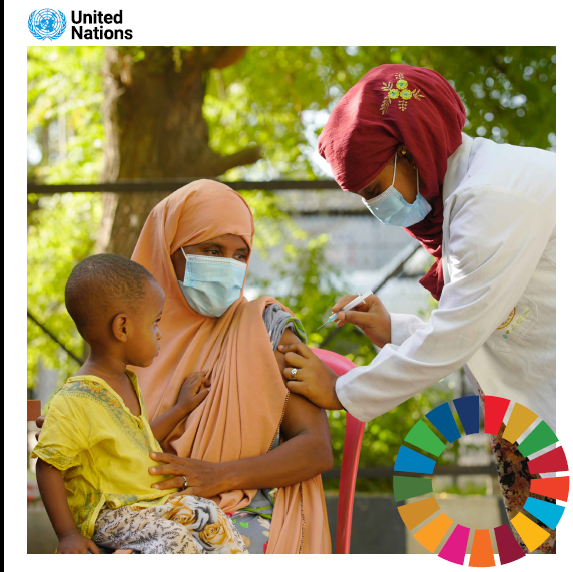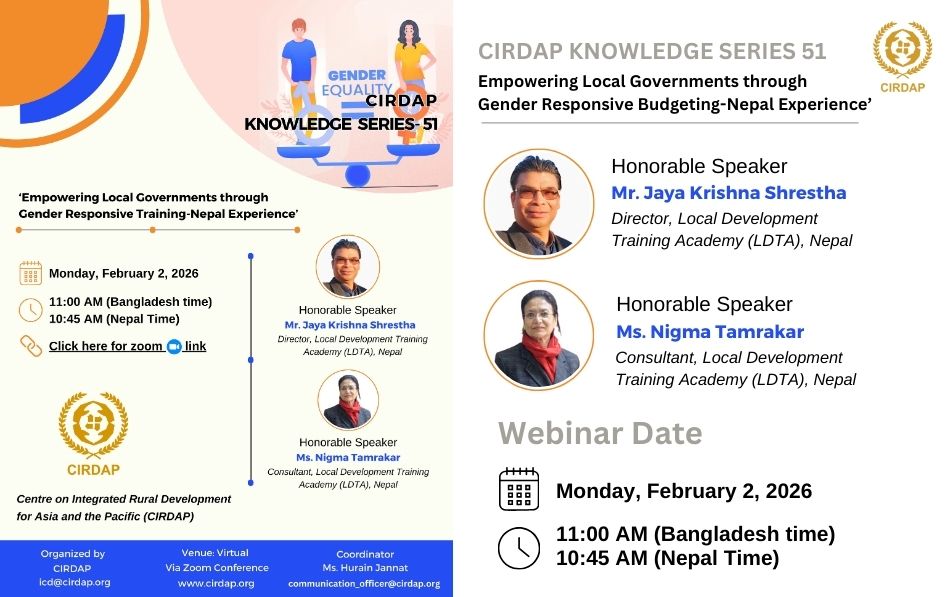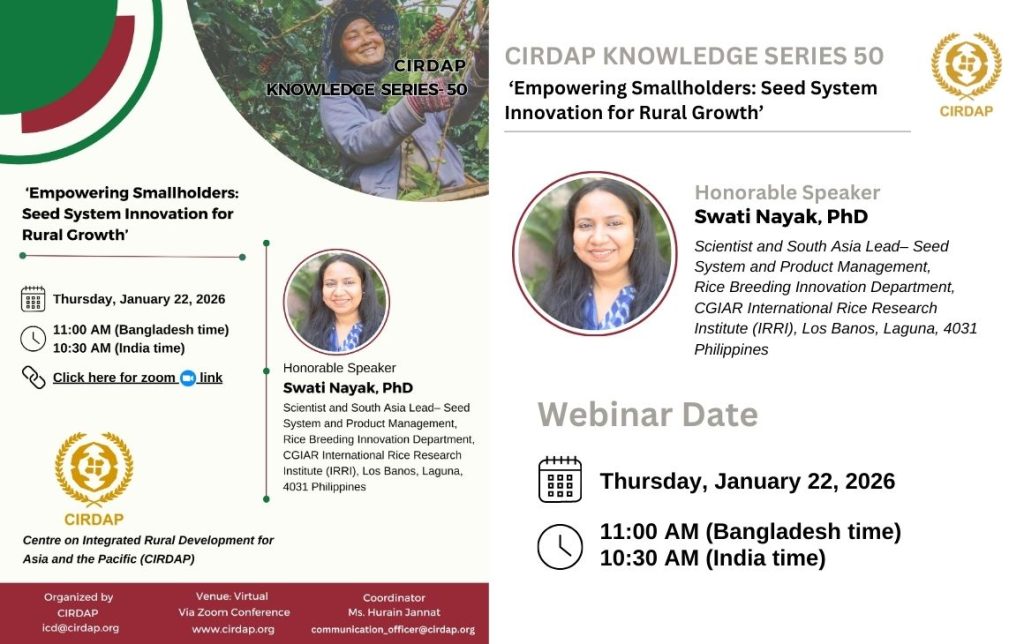Foreword
The global community is at a critical moment in its pursuit of the Sustainable Development Goals (SDGs). More than a year into the global pandemic, millions of lives have been lost, the human and economic toll has been unprecedented and recovery efforts so far have been uneven, inequitable and insufficiently geared towards achieving sustainable development. The current crisis is threatening decades of development gains, further delaying the urgent transition to greener, more inclusive economies, and throwing progress on the SDGs even further off track.
Had the paradigm shift envisioned by the 2030 Agenda for Sustainable Development been fully embraced over the past six years, the world would have been better-prepared to face this crisis – with stronger health systems, expanded social protection coverage, the resilience that comes from more equal societies, and a healthier natural environment. Regrettably, the SDGs were already off track even before COVID-19 emerged. Progress had been made in poverty reduction, maternal and child health, access to electricity, and gender equality, but not enough to achieve the Goals by 2030. In other vital areas, including reducing inequality, lowering carbon emissions and tackling hunger, progress had either stalled or reversed.
As the pandemic continues to unfold, the Sustainable Development Goals Report 2021 outlines some significant impacts in many areas that are already apparent. The global extreme poverty rate rose for the first time in over 20 years, and 119 to 124 million people were pushed back into extreme poverty in 2020. There is a risk of a generational catastrophe regarding schooling, where an additional 101 million children have fallen below the minimum reading proficiency level, potentially wiping out two decades of education gains. Women have faced increased domestic violence, child marriage is projected to rise after a decline in recent years, and unpaid and underpaid care work is increasingly and disproportionately falling on the shoulders of women and girls, impacting educational and income opportunities and health. Notwithstanding the global economic slowdown, concentrations of major greenhouse gases continue to increase. With the global average temperature reaching about 1.2°C above pre-industrial levels, the climate crisis has well and truly arrived, and its impacts are being felt across the world. The pandemic has also brought immense financial challenges, especially for developing countries – with a significant rise in debt distress and dramatic decreases in foreign direct investment and trade.
Yet, with a surge in global solidarity and leadership from the highest political level, countries can still deliver on the 2030 Agenda and the 2015 Paris Agreement on Climate Change. A global vaccination plan, designed and implemented by the countries that can produce vaccines today or will be able to do so if properly supported, is an urgent first step in that direction.
A recommitment by Governments, cities, businesses, and industries to ensure that the recovery reduces carbon emissions, conserves natural resources, creates better jobs, advances gender equality and tackles growing poverty and inequalities is a further imperative. As this report shows, the availability of high-quality data is also critical, helping decision makers to understand where investments can have the greatest impact; but improved data collection will not happen without increased data financing, from both international and domestic resources.
The challenges are immense, but there are also reasons for hope. The COVID-19 crisis demonstrated inspiring community resilience, highlighted the herculean work by essential workers in myriad fields and facilitated the rapid expansion of social protection, the acceleration of digital transformation and unprecedented worldwide collaboration on the development of vaccines. A brighter future is possible. We must use the crisis to transform our world, deliver on the 2030 Agenda and keep our promise to current and future generations.
António GuterresSecretary-General, United Nations
View from the pandemic: stark realities, critical choices
As we enter the second year of the COVID-19 pandemic, it is abundantly clear that this is a crisis of monumental proportions, with catastrophic effects on people’s lives and livelihoods and on efforts to realize the 2030 Agenda for Sustainable Development. Historically, pandemics have served as catalysts for political, economic and social change, and that still holds true today. The year 2021 will be decisive as to whether or not the world can make the transformations needed to deliver on the promise to achieve the SDGs by 2030 – with implications for us all.
The Sustainable Development Goals Report 2021 uses the latest available data and estimates to reveal the devastating impacts of the crisis on the SDGs and point out areas that require urgent and coordinated action. The report was prepared by the United Nations Department of Economic and Social Affairs in collaboration with more than 50 international agencies.
Years, or even decades, of progress have been halted or reversed. In 2020, the global extreme poverty rate rose for the first time in over 20 years. Hundreds of millions of people were pushed back into extreme poverty and chronic hunger. The COVID-19 pandemic has interrupted one or more essential health services and poses major health threats beyond the disease itself. It has wreaked havoc worldwide on children’s learning and well-being, and women have suffered a disproportionate share of job losses and increased care work at home.
The pandemic has exposed and intensified inequalities within and among countries. The poorest and most vulnerable people have a greater risk of becoming infected by the virus, and bear the brunt of the economic fallout. The crisis has threatened the livelihoods of 1.6 billion workers in the informal economy. The collapse of international tourism disproportionally affects small island developing States. And vast inequities exist in vaccine distribution: as of 17 June 2021, around 68 vaccines were administered for every 100 people in Europe and Northern America compared with fewer than 2 in sub-Saharan Africa.
The climate crisis, the biodiversity crisis and the pollution crisis persist, despite the pandemic. Concentrations of major greenhouse gases continue to increase despite the temporary reduction in emissions in 2020 related to lockdowns and other COVID-19 response measures. The world remains woefully off track in meeting the Paris Agreement. Biodiversity is declining, and terrestrial ecosystems are being degraded at alarming rates. Around the world, 1 million plastic drinking bottles are purchased every minute, and 5 trillion single-use plastic bags are thrown away each year.
The COVID-19 pandemic serves as a mirror for the world. It reflects deeply rooted problems in our societies: insufficient social protection, weak public health systems and inadequate health coverage, structural inequalities, environmental degradation and climate change.
Resilience, adaptability and innovation bring us optimism. In the face of tremendous challenges, many Governments, the private sector, academia and communities have demonstrated quick responses, remarkable creativity and new forms of collaboration. Between 1 February and 31 December 2020, Governments around the world announced more than 1,600 new social protection measures in response to the crisis. Scientist across the globe have been working together to develop life-saving vaccines and treatments in record time. The pandemic has sped up the digital transformation of Governments and businesses, profoundly changing the ways in which we interact, learn and work.
Transformational changes are needed, and the SDGs provide the road map. The crisis demonstrates the interdependency and interlinkages among the various dimensions of sustainability – from health, well-being, and social and economic prosperity to climate and ecosystems. To address the vulnerabilities exposed by the pandemic, Governments and the international community should make structural transformations and develop common solutions guided by the SDGs. These include significantly strengthening social protection systems and public services (including health systems, education, water, sanitation and other basic services); increasing investments in science, technology and innovation; creating fiscal space in developing countries; taking a green-economy approach and investing in clean energy and industry; and transitioning to sustainable food systems.
Investing in data and information infrastructure is critical. The pandemic has taught us that weaknesses in data and information systems have decision makers flying blind. A year into the pandemic, only about 60 countries had data on COVID-19 infection and death rates that could be disaggregated by age and sex and that were publicly accessible. These data deficiencies have serious consequences for people’s lives. Policies, programmes and resources aimed at protecting people during this challenging time will inevitably fall short without the evidence to focus and hone interventions. Investing in data and information systems is not money wasted. Statistical offices around the world have embraced innovative approaches and forged partnerships, improving the availability of data for evidence-based decisions. Increased investments in national data and statistical systems and the mobilization of additional international and domestic resources will be imperative if we are to build back better from the crisis and accelerate implementation of the SDGs.
Building back better requires effective multilateralism and the full participation of all societies. This global crisis demands a shared global response. In the face of the many challenges we face, a unified vision of coherent, coordinated and comprehensive responses from the multilateral system is more important than ever. Since the pandemic affects everyone, everywhere, the implementation of solutions requires action and participation from all sectors of society, including Governments at all levels, the private sector, academia, civil society and individuals – youth and women, in particular.
We are at a critical juncture in human history. The decisions we make and actions we take today will have momentous consequences for future generations. Lessons learned from the pandemic will help us rise to current and future challenges. Let us seize the moment to make this a decade of action, transformation and restoration to achieve the SDGs and make good on the Paris Climate Agreement.
Liu ZhenminUnder-Secretary-Generalfor Economic and Social Affairs
Please see the attach report below:



















